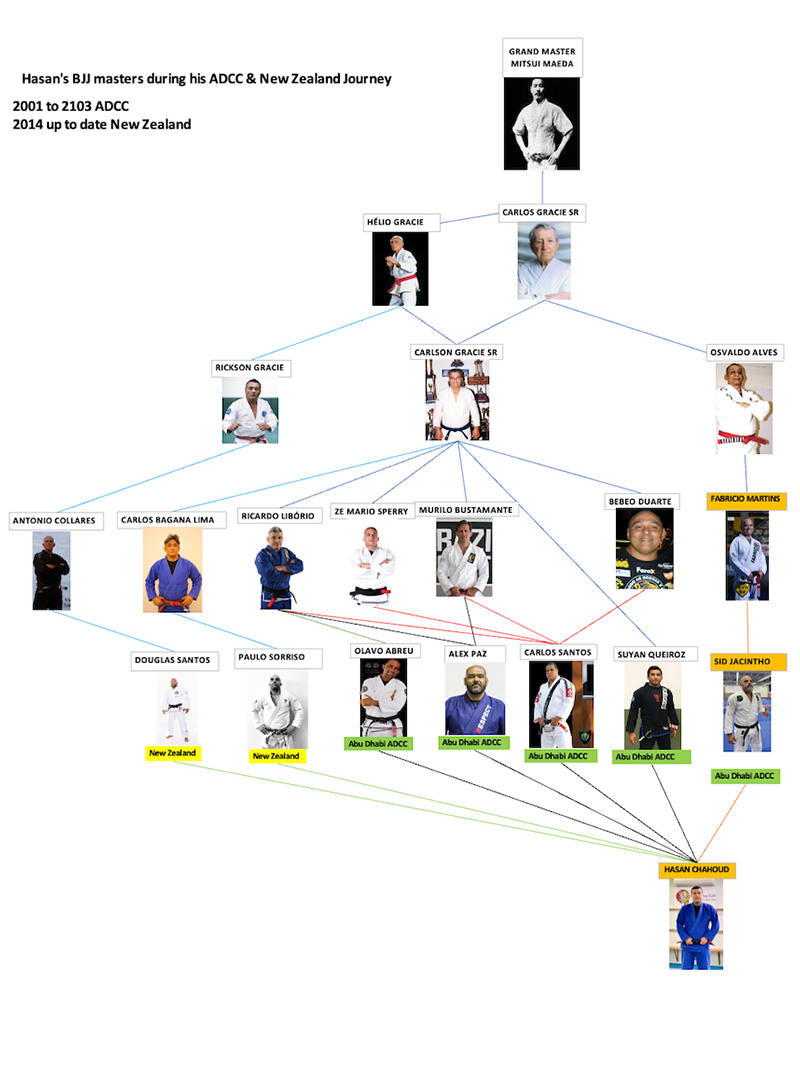“I had tried several jiujitsu gyms on trial, but after feeling disappointed, I was ready to give up this amazing exercise. By chance, I discovered this place. It’s like a family and a place brimming with love. I drive here for an hour, and it’s worth it. It’s a place where coaches and team members can exercise while respecting each other.” J
About Us
Brazilian Jiu-Jitsu (BJJ) is recognized globally as one of the most effective martial arts, demonstrated repeatedly in various combat sports arenas. Preserving the origin and lineage of Brazilian Jiu-Jitsu is crucial to maintaining its integrity and essence through generations. The purity of this martial art risks dilution if taught incorrectly by unprepared commercial gyms or unrecognized instructors, potentially reducing a rich and profound combat system to a mere commercial activity devoid of its original strength and significance.
At Grappling-Lab BJJ Club, we are committed to teaching authentic Brazilian Jiu-Jitsu, ensuring that the core principles and techniques are passed down faithfully to a new generation of practitioners. Professor Hasan, our lead instructor, proudly holds a 1st degree Black Belt under Master Sid Jacintho. He is not only certified by the FIT federation under his mentor but is also an IBJJF-certified instructor, a credential that emphasizes adherence to high standards of teaching and competition in the sport. His rich experience includes training with several renowned masters at ADCC, where he deepened his understanding and mastery of BJJ strategies (refer to the maps below for more details). Now based in New Zealand, Professor Hasan continues his BJJ journey, enriching the local martial arts community with his depth of knowledge and commitment to the true essence of Brazilian Jiu-Jitsu.
Lineage: Mitsuyo Maeda > Carlos Gracie Sr. > Osvaldo Alves > Fabricio Martins > Sid Jacintho > Hasan Chahoud
This distinguished lineage underscores our dedication at Grappling-Lab BJJ to preserving the profound legacy and teachings of Brazilian Jiu-Jitsu, ensuring that each student receives training that is both authentic and directly connected to the roots of the sport.
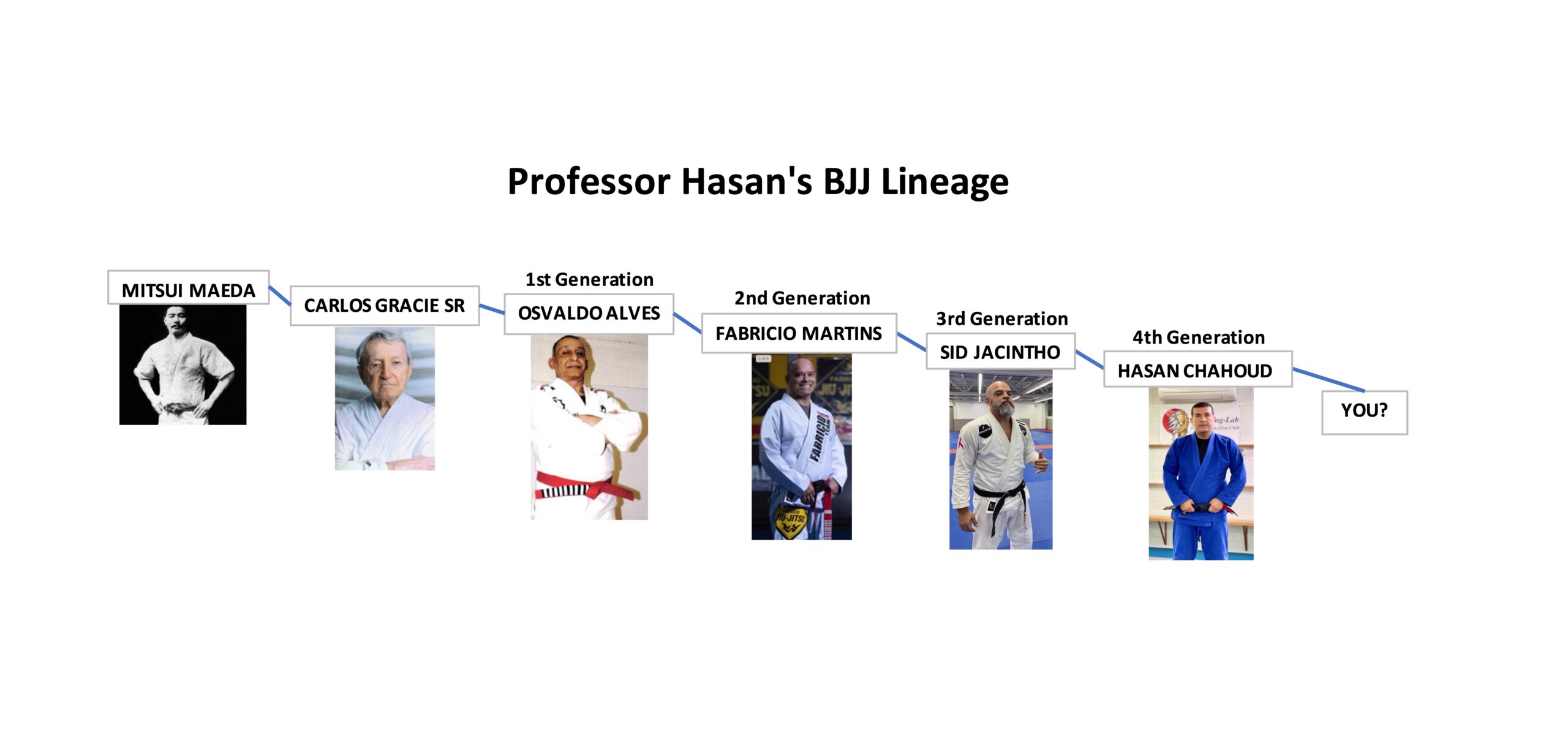
Grappling-Lab BJJ Club: A Legacy of Excellence in New Zealand
Grappling-Lab Brazilian Jiu-Jitsu Club proudly serves as the official representative of the FIT Sid Jacintho in New Zealand, under the BJJ FIT Association – Fabricio International Team. Led by Hasan Chahoud, a 1st degree Black Belt under Master Sid Jacintho, our club offers unmatched expertise in BJJ. Hasan brings over 21 years of grappling experience, beginning his journey in 2001 at ADCC Abu Dhabi (Abu Dhabi Combat Club). His extensive training includes over 13 years in Abu Dhabi, starting with freestyle wrestling under renowned coaches like Alexander Savko (Sasha, “the bulldozer”), Peter Baltaliyski, and Lubomir Guedjev. A year into his training, Hasan expanded his skills on the BJJ mats, training under esteemed Brazilian masters such as Carlos Santos, Suyan Queiroz, Olavo Abreu, Sid Jacintho, Alex Paz, Mohd Jehad, Marcelo Motta, and Ricardo Fraenkel.
After relocating to New Zealand with his family in 2013, Hasan continued his BJJ journey in Auckland, training with DSteam and later SorrisoBJJ, where he earned his Black Belt from Master Paulo Sorriso. Although invited back to Abu Dhabi by Master Sid Jacintho in 2014 to receive his Black Belt, circumstances prevented his travel. Nevertheless, Hasan maintains that “Belts are only good for holding-up your pants,” reflecting his focus on continual learning and improvement rather than formal recognition.
At Grappling-Lab, our mission extends beyond the mat; we strive to develop champions in life as well as in competition. We provide pure, authentic BJJ instruction aimed at improving skills and building character. We warmly welcome you and your family members to join our community, where everyone, from beginners to advanced practitioners, can grow and thrive in the art of Brazilian Jiu-Jitsu.
Should I have a previous experience to start BJJ?
No, you don’t need previous experience in martial arts to start training Brazilian Jiu-Jitsu (BJJ). BJJ is widely recognized for its welcoming environment to beginners and its effective learning curve, making it accessible to people of all backgrounds and fitness levels.
Why Previous Experience Isn’t Necessary
- Fundamental Focus: BJJ classes typically start with the fundamentals, which are designed for complete beginners. These include basic techniques, safety principles, and the foundational positions and movements of the sport.
- Structured Learning: Most BJJ gyms have structured programs that gradually introduce complexity. This structured approach ensures that you build a solid base before moving on to more advanced techniques.
- Inclusive Community: The BJJ community is known for its inclusiveness and camaraderie. More experienced practitioners often enjoy helping beginners, which fosters a supportive learning environment.
Benefits of Starting BJJ Without Prior Experience
- Physical Fitness: BJJ is an excellent workout that improves cardiovascular health, flexibility, strength, and coordination.
- Mental Benefits: Practicing BJJ can enhance mental toughness, problem-solving skills, and stress management. The focus required on the mat helps many practitioners find it meditative.
- Social Interaction: Training BJJ is a social activity. It offers a great opportunity to meet new people and build relationships based on mutual respect and shared challenges.
- Self-Defense Skills: BJJ is effective in real-world self-defense situations. It teaches how to control an opponent and how to defend oneself from various positions, especially from the ground.
Considerations for Beginners
- Physical Condition: While you don’t need to be in peak physical condition to start, being reasonably fit can help manage the initial physical demands of the sport.
- Learning Curve: BJJ can be complex, and progress can sometimes feel slow. Persistence and patience are key.
- Safety: Like any contact sport, there’s a risk of injury in BJJ. Learning proper techniques and adhering to safety guidelines significantly reduces these risks.
- Finding the Right Gym: It’s crucial to choose a gym with a good atmosphere and qualified instructors who pay attention to the needs of beginners. In today’s landscape, many commercial gyms offer Brazilian Jiu-Jitsu training that may not adhere to the sport’s traditional roots and techniques. However, at Grappling-Lab BJJ, you’ll experience authentic BJJ in a family-like atmosphere. Our lead instructor, Prof. Hasan, is certified by both the International Brazilian Jiu-Jitsu Federation (IBJJF) and master Sid Jacintho under the FIT federation in Brazil. This ensures that the training you receive is genuine and rooted in the core principles and techniques of Brazilian Jiu-Jitsu. Importantly, BJJ does not require a certain age to start. Many individuals begin their BJJ journey at the age of 30, 40, 50, and even 60, finding it a rewarding and enriching experience at any stage of life. At Grappling-Lab BJJ, we welcome all ages, ensuring that everyone, regardless of when they start, receives the best possible introduction and continuation of their BJJ education.In summary, Brazilian Jiu-Jitsu is accessible to everyone, regardless of prior experience in martial arts. Starting BJJ can offer numerous benefits, including physical fitness improvements, mental resilience, and valuable self-defense skills. As long as you approach the sport with an open mind and commitment, you can enjoy and progress in BJJ from day one.
How long does it take to learn Brazilian Jiu-Jitsu?
Grading And The Belt System in BJJ?
Grading in Brazilian Jiu-Jitsu (BJJ) reflects not only technical proficiency but also a practitioner’s commitment, problem-solving abilities, and contributions to the community. Unlike other martial arts where a black belt signifies proficiency, in BJJ, a black belt denotes a master level understanding of the art. The belts progress in the order of White, Blue, Purple, Brown, and Black. From White through Brown, belts can be awarded up to four stripes, which indicate progress within the belt before advancing to the next level.
Adult Belt System
- White Belt: The starting point for all practitioners, focusing on fundamental skills.
- Blue Belt: Requires about 1-2 years of training; practitioners develop a good grasp of basics and begin personalizing their techniques.
- Purple Belt: Attainable after 3-5 years, marking a deep comprehension of techniques and ability to instruct others.
- Brown Belt: Advanced practitioners refining their personal game, often taking 5-7 years to achieve.
- Black Belt: Represents mastery and typically requires a decade of dedication. This rank encompasses a lifetime commitment to evolving within the sport.
Children’s Belt System
For practitioners under the age of 16, BJJ features a modified belt system to better suit their developmental stages:
- White Belt
- Yellow Belt
- Orange Belt
- Green Belt Each belt in the children’s system can also include up to four stripes, reflecting gradual progression. Blue belt and higher ranks carry age requirements, which is why the children’s system stops at green.
Promotion Conservatism and Informality
BJJ is renowned for its informal yet conservative approach to promotions. The sport lacks a rigid set of “rules” for when a student should be promoted, leaving significant discretion to the instructor. This flexibility allows promotions to be highly personalized and based on a comprehensive evaluation of a student’s readiness, which includes their ability to apply techniques under pressure, their understanding of BJJ principles, and their overall contribution to the dojo environment.
This approach ensures that a BJJ belt is a true reflection of a practitioner’s ability and dedication, rather than merely their knowledge of set techniques. It highlights BJJ’s focus on continuous learning and personal growth, making each promotion a significant and celebrated achievement in a practitioner’s journey.
Our Affiliates
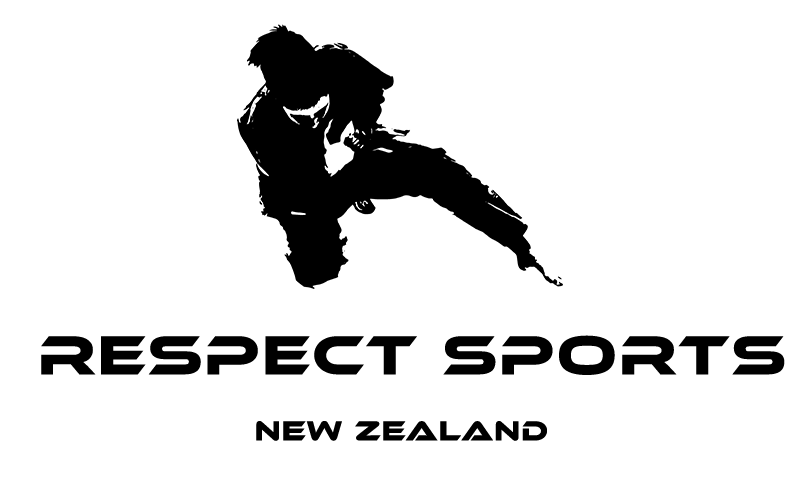
Established in 2017 in Auckland, Respect Sports New Zealand is dedicated to providing high-quality gear for Brazilian Jiu-Jitsu and MMA enthusiasts. Our range includes specialized BJJ and Judo Gis, rash guards, compression pants, and MMA shorts, crafted to meet the needs of both training and competition.
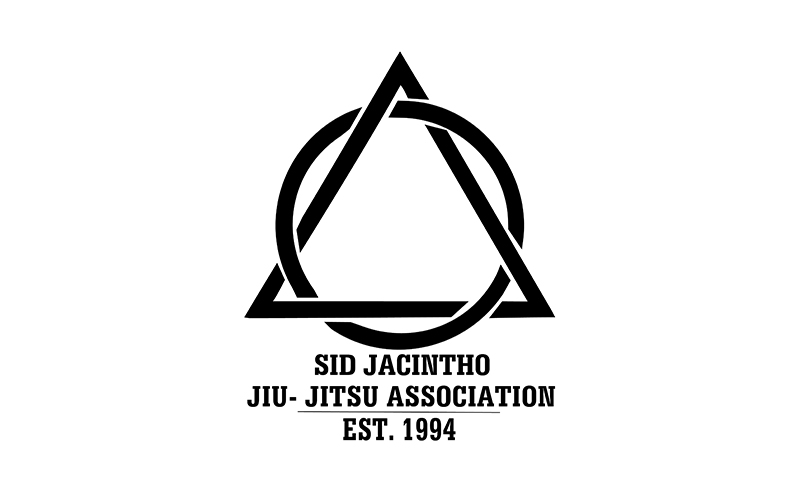
The Sid Jacintho Jiu-Jitsu Association fosters excellence in Brazilian Jiu-Jitsu under the guidance of Sid Jacintho, a celebrated black belt with decades of global competition experience. The association emphasizes traditional techniques, character building, and the holistic development of its students, offering classes across various levels (Sid Jacintho Brazilian Jiu-Jitsu School) (Abu Dhabi Jiu Jitsu Pro).
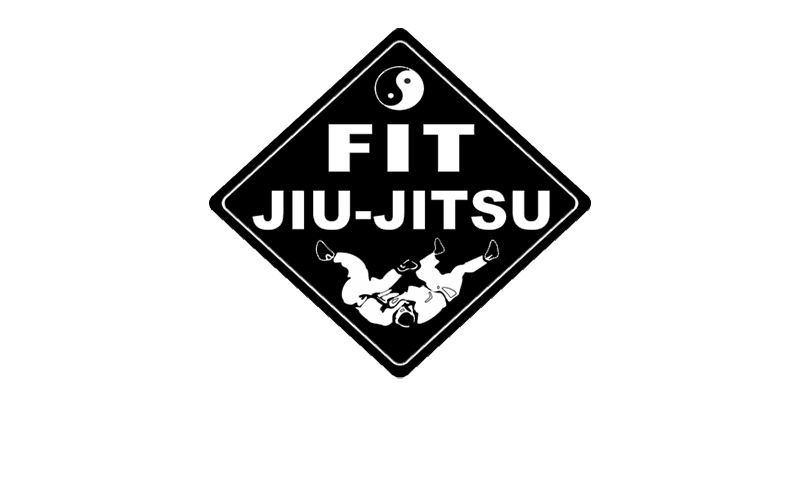
As part of the global FIT Jiu-Jitsu team, the FIT Jiu-Jitsu Federation is committed to the spread and development of Brazilian Jiu-Jitsu around the world. The federation provides a supportive community for both beginners and seasoned practitioners, with a strong emphasis on technical skill and personal growth
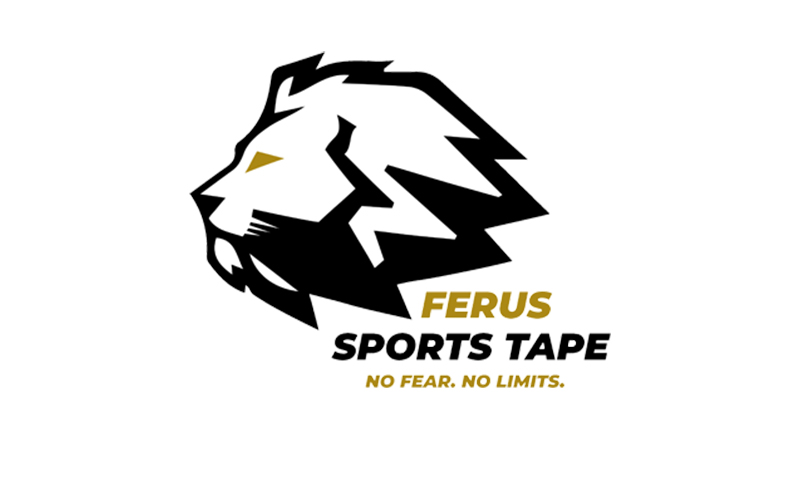
Ferus Sports is a leading provider of sports tape, trusted by athletes to offer superior support and durability. Our products are designed to withstand the rigorous demands of sports and aid in the prevention and recovery of injuries, ensuring athletes can perform at their best.


